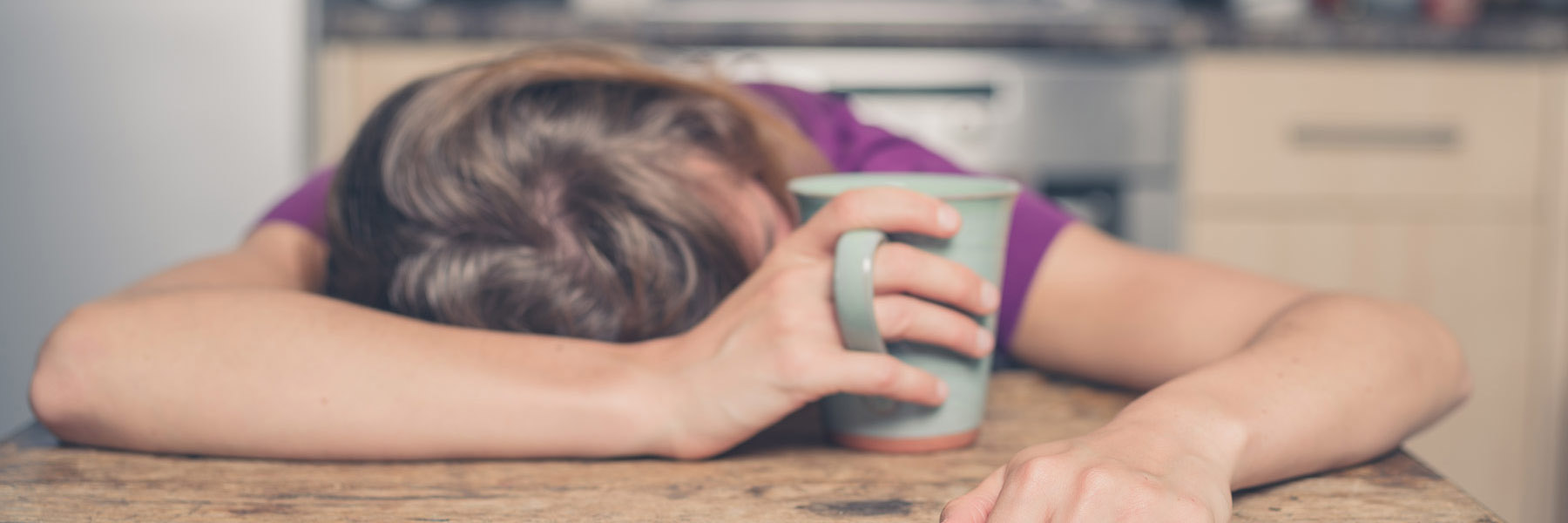Overcome the Food Coma – Without Caffeine

You know the feeling. It’s that post-lunch slump or the after-dinner dip, or what’s commonly called “food coma.”
You can avoid this drowsy state, which doctors call postprandial somnolence, without a jolt of caffeine.
Why am I so tired?
“There are multiple systems in the body contributing to this effect,” says Dr. Mark Nash, Associate Scientific Director for Research at The Miami Project to Cure Paralysis. He also specializes in physical medicine and rehabilitation at the University of Miami Health System.
“After you eat, there’s a rise in blood sugar and a corresponding output of insulin from the pancreas that brings blood sugar levels back to baseline. When blood sugar is still very high after excessive food intake, it permits more tryptophan, which is renowned for causing drowsiness, to cross from the circulation into the brain. Once in the brain, tryptophan can be converted to serotonin and then melatonin, which encourages sleepiness.”
Sometimes the pancreas overshoots the insulin need, which causes blood sugar to drop to deficient levels (a state called rebound hypoglycemia). This will also cause lethargy and symptoms of fatigue, he says.
While this doesn’t mean your body is shutting down after you eat, it’s still struggling to digest your food and regulate your blood sugar. That’s why food coma is even more of a problem for people with diabetes and those with pre-diabetes or resting hyperglycemia.
What causes food coma?
- Eating a large amount of food in a short period of time
- Not drinking enough water before and while you eat
- Having elevated blood sugar, pre-diabetes, or diabetes
- Consuming high-glycemic beverages and foods (these include starchy foods, some fruits, sweet desserts, and sugary drinks)
- Inadequate sleep and irregular sleep schedules
Can I avoid it?
If you get noticeably sleepy after most meals, you may have an undiagnosed issue with your blood sugar. “Have your doctor check your blood sugar for pre-diabetes or diabetes,” Dr. Nash said. “See if there’s dysfunction that can be addressed and regulated.”
If you frequently overeat but never feel full, “have your endocrine system investigated by your doctor. Some disorders hinder the nervous system and hormonal signals that tell the brain when the body is hungry and when it’s satiated.”
Once you’ve ruled out these related health conditions, try the following to help avoid blood sugar spikes and crashes:
- Divide large meals into smaller meals, and eat more frequently.
- Drink more water and unsweetened beverages before and during meals. This will increase your rate of digestion while helping to fill you up, so you eat smaller portions.
- Eat and drink less refined sugar, all kinds of sweeteners, and high-glycemic foods and beverages.
- Look at the quality and regularity of your sleep. If you don’t sleep well, you will be more susceptible to the mid-day slump. You may also eat when you’re tired instead of hungry, and experience rebound hypoglycemia.
- Eat more fiber, which helps prevent blood sugar spikes.
- Avoid excessive caffeine because it can lead to energy crashes.
- After you eat (not before), exercise at a moderate intensity for at least 30 minutes. Research indicates that this can lower your blood sugar and may give you about 22 hours of protection from a blood sugar crash.
No one wants to yawn the afternoon away, pass out at their desks after lunch, or miss out on family time after a holiday meal. So, try these strategies to stay more energized throughout your day.
Dana Kantrowitz is a contributing writer for UMiami Health News.
Tags: blood sugar, caffeine, Dr. Mark Nash, food coma, tryptophan
